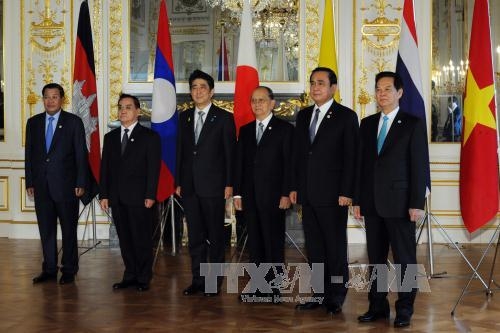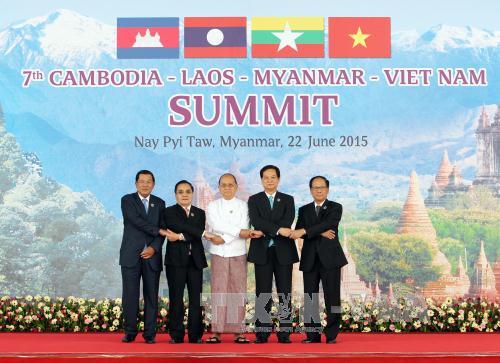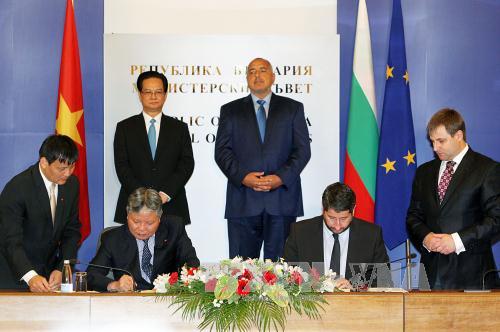Japan-Mekong cooperation is necessary for the Mekong sub-region’s socio-economic development and the ASEAN integration process, Prime Minister Nguyen Tan Dung said at the seventh Mekong-Japan Summit held in Tokyo on July 4.
 |
| Japanese Prime Minister Shinzo Abe and representatives from the five Mekong countries at the 7th Mekong-Japan Summit_Photo: VNA |
Talking about the 2015 Tokyo Strategy on Mekong-Japan cooperation for the 2016-18 period adopted during the summit, Dung pointed out three major points to help the member states achieve their robust growth targets, including solid economic foundations, balancing economic profits with environmental protection, and development.
At the summit, Japanese leaders and representatives from the five Mekong countries, namely Cambodia, Laos, Myanmar, Thailand and Vietnam, agreed to develop regional industrial infrastructure, focusing on urban development, energy and transportation.
They discussed stimulating the industrial sector and regional value chain by building special economic zones, promoting sustainable growth, coordinating actions on climate change and management of Mekong River water, and increasing cooperation with other Mekong sub-region mechanisms, the private sector and international organizations.
With the aim of maintaining peace, stability and prosperity in the region, the leaders reaffirmed their determination to deepen cooperation among the member countries on regional and international issues.
In the 2015 Tokyo Strategy, the leaders emphasized the importance of maritime security and safety, the full implementation of the DOC and the formation of a COC.-


